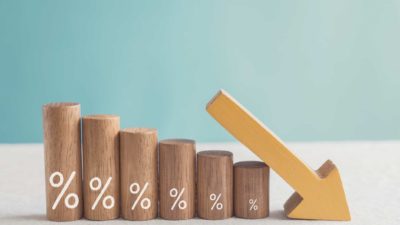With the returns on cash nearing 4% and heightened economic uncertainty, investors are raising the bar on what they require when investing in ASX 200 shares.
Gone are the days when a 2% or 3% dividend yield was considered adequate. A decent risk-free return from cash parked at the bank means the criteria to invest elsewhere is more stringent. Especially when we could be hurling toward a recession.
The share market sell-off has produced plenty of high-yielders across the S&P/ASX 200 Index (ASX: XJO). Though, as earnings potentially take a hit from tightened budgets, some of these companies might be forced to cut their dividends to a more sustainable level. There's a good chance ASX-listed retailers will be some of the hardest hit in a recessionary environment.
The 15% year-to-date fall in the Super Retail Group Ltd (ASX: SUL) share price would suggest investors are already anticipating poorer performance. Looking at the company's recent margins, the concern could be warranted.
A concern for the Super Retail share price?
Trading at a price-to-earnings (P/E) ratio a touch more than 10 times, Super Retail Group looks dirt-cheap compared to the Australian market average of 14.5 times. But the company's share price isn't trading at a discount for no reason.
At the annual general meeting, Super Retail management highlighted the segment results of Supercheap Auto, Rebel, BCF, and Macpac. Notably, the company experienced reductions in its gross margins across all segments compared to the previous year, as follows:
- Supercheap Auto: 60 basis point decline in gross margin
- Rebel: 80 basis point decline in gross margin
- BCF: 38% decline in profit before tax
- Macpac: undisclosed decline in gross margin
For the most part, the deteriorating margins were labelled a consequence of increased supply chain costs and a normalisation in promotional activity.
It appears investors are worried that profits could fall further, and this concern might be justified. Between 2016 and 2019, Super Retail Group's profit margin floated between 2.6% and 5.1%. In FY22, the company's margin remained above historical levels at 6.8%.
If the company were to return to a margin of say 3.85% (on the same revenue), for example, Super Retail Group would be trading on a P/E of around 17 times based on the current market capitalisation.
Is the dividend yield maintainable?
The all-important question for investors that are assessing whether Super Retail shares are worth buying for the income is: can it stay at these levels?

In FY22, the company coughed up 70 cents per share in dividends. As depicted above, this is around 40% more than its payouts pre-pandemic. There is a chance that dividends could fall from here as profits normalise.
However, as recently reported, Morgans believes there is potential for a special dividend in the future. The broker pointed out that Super Retail Group has accumulated over $250 million worth of franking credits.








